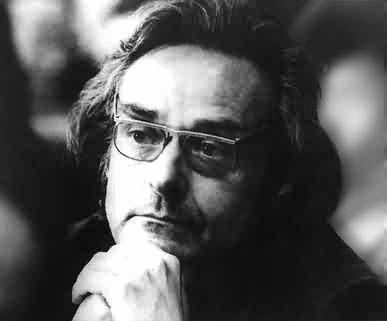
Evald Vasilievich ILYENKOV (18.02.1924, Smolensk — 21.03.1979, Moscow) was a Russian Soviet philosopher and specialist in Hegelian-Marxist dialectics. He also researched the questions of psychology, pedagogy and history of philosophy.
In 1941 he entered the Department of Philosophy at Moscow Institute of Philosophy, Literature and Art, but the beginning of Second War changed his life. After completing his training at artillery school, he went to the front as a platoon leader in 1943 and remained in action until the end of the war. He was decorated for outstanding bravery. After the war he entered Moscow State University. In 1953 he defended his Ph.D. thesis 'Some Questions of Materialist Dialectics in Works of K. Marx. Criticism of Political Economics.' In 1955 Ilyenkov and Korovikov presented their work 'Epistemological Theses', where they argued for an understanding of philosophy as the science of thinking. Marxist reactionaries accused them of supporting philosophical idealism and deprived them of their teaching rights. These events transformed Ilyenkov into a philosophical dissident. He became a symbol of philosophical freedom of thought and a banner of creative Marxism in particular. His discussion with Prof. Dybrovsky about the essence of ideality brought him fame and he found many faithful supporters. From 1953 to his death he worked in the Institute of Philosophy of the USSR Academy of Sciences. His Doctoral thesis 'On the Essence of Thinking' was defended in 1968. In 1965 he was awarded the Chernyshevsky Prize for his series of works on history and theory of dialectics. Ilyenkov was translator and editor of works of Hegel, Fichte and Marx. Works of Ilyenkov were translated and published into 17 languages.
Evald Ilyenkov was a staunch supporter of Marx's conception but he strived to bring its spirit into creativity and modernization. The main topics of his researches were the problem of active imagination, the problem of contradictions in being, the problem of learning and training, and the problem of interconversion of abstraction and concreteness in thought. Eventually, Ilyenkov became a noted Soviet philosopher thanks to his researches of traditional philosophical problem of ideality.
Evald Ilienkov worked out an original conception of ideality which was a creative development of Marx's theory of consciousness. It is well known that Marxist tradition has always insisted that knowledge derives from praxis. Following in that tradition, Ilyenkov suggested defining specific components of practical activity which directly form general impressions and abstractions. There are invisible schemes of praxis or operations, stereotypes and instructions of common human activity. Such components carry general information from things to mind. According to Ilyenkov, ideality is a form of human activity that is caused by forms of things which are drawn into the 'anthroposphere'. Thus, he strived to advance the principle of materialism and deduced a property of ideality from certain aspects of material praxis. As a result, ideality is an material-immaterial phenomenon that is born in the external material activity of people and corresponds to the facts, but at the same time ideality or schemes of activity do not contain materiality. Material praxis, by means of inner structures, takes a thing's measurements and carries this general information from the physical world into the world of human spirit. Ilyenkov's conception of ideality partially resembles Bridgman's conception of operational pragmatism.
-=-
Ilyenkov E. Dialectics of the Abstract and the Concrete in Marx's 'Capital'. Moscow, 1960;
Ilyenkov E. Dialectical Logic. Moscow, 1984;
Ilyenkov E. Lenin's Dialectics and Metaphysics of Positivism. Moscow, 1980;
Ilyenkov E. Idols and Ideals. Moscow, 1968;
Ilyenkov E. How Does Person Start To Develop Himself? Moscow, 1984;
Ilyenkov E. Philosophy and Culture. Moscow, 1991;
Ilyenkov E. Logisches und Historisches, Geschichte der materialistischen Dialektik. Dietz Verlag. 1974;
Ilyenkov E. Die Dialektik von Abstrakem und Konkretem, Geschichte der materialistischen Dialektik. Dietz Verlag, 1974;
-=-
Vladimir Krasikov, Ph.D., Prof.
Kemerovo State University
Russia
